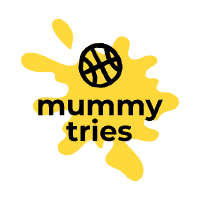Dealing with an unsupportive husband after a C-section can be a challenging experience for new mothers. A C-section is a major surgery that requires a longer recovery period than a vaginal delivery. The mother needs to take care of her physical and emotional health during this time, and having a supportive partner can make a big difference.
Understanding C-Section Recovery is essential for both the mother and the partner. The recovery period can last up to six weeks, and during this time, the mother will need help with daily activities such as cooking, cleaning, and taking care of the baby. The partner should be aware of the physical and emotional challenges that the mother may face during this time and provide support accordingly.
Managing Pain and Discomfort is another important aspect of C-section recovery. Mothers will experience discomfort and pain around the incision area, and it is essential to take pain relief medication as prescribed by the doctor to manage the pain. Mothers should also get enough rest and avoid strenuous activities that can strain the incision area. The partner can help by taking care of household chores and allowing the mother to rest as much as possible.
Key Takeaways
- C-section recovery can be challenging, and having a supportive partner can make a big difference.
- Understanding C-Section Recovery is crucial for both the mother and the partner.
- Managing Pain and Discomfort is important for the mother’s recovery, and the partner can help by taking care of household chores.
Understanding C-Section Recovery
Recovering after a C-section can be a challenging experience for new mothers. It involves both physical and emotional healing, and may require additional support from family and friends. To help new mothers understand what to expect during their recovery, this section provides an overview of the physical and emotional challenges that may arise.
Physical Recovery After Cesarean Delivery
C-section recovery can take longer than vaginal delivery recovery, and may require more support from healthcare providers. The incision site will be sore and tender for several weeks, and new mothers may experience pain while walking, sitting, or standing. Pain medications, such as ibuprofen or acetaminophen, may be prescribed to help manage the pain.
The length of recovery time can vary depending on the individual, but most new mothers can expect to spend two to four days in the hospital after a C-section. During this time, healthcare providers will monitor the mother’s incision site for any signs of infection and provide support for breastfeeding.
After leaving the hospital, new mothers will need to take care of their incision site to promote healing. This may include keeping the site clean and dry, avoiding heavy lifting and strenuous activity, and wearing loose-fitting clothing. It is important to follow the healthcare provider’s instructions for care to prevent complications and promote healing.
Emotional Challenges and Postpartum Depression
In addition to physical healing, new mothers may also experience emotional challenges after a C-section. This may include feelings of sadness, anxiety, or frustration. It is important for new mothers to seek support from family and friends, as well as healthcare providers, to help manage these emotions.
Postpartum depression is a common condition that can occur after childbirth, including after a C-section. Symptoms may include feelings of sadness, anxiety, and hopelessness, as well as changes in sleep and appetite. Healthcare providers can provide support and treatment options for new mothers experiencing postpartum depression.
Overall, new mothers should be prepared for the physical and emotional challenges that may arise during C-section recovery. With support from healthcare providers, family, and friends, new mothers can successfully navigate the recovery process and focus on bonding with their new baby.
Managing Pain and Discomfort
After a C-section, mothers may experience pain and discomfort around the incision area. It is essential to take pain relief medication as prescribed by the doctor to manage the pain. Mothers should also get enough rest and avoid strenuous activities that can strain the incision area.
Pain Relief Options
There are several pain relief options available for mothers after a C-section. The most common pain relief option is medication, which can be taken orally or through an IV. Pain medication can help relieve pain and discomfort caused by the incision and contractions.
In addition to medication, mothers can also use heat therapy to manage pain. Applying a heating pad or warm compress to the incision area can help reduce pain and promote healing. Cold therapy can also be used to reduce swelling and inflammation around the incision area.
Dealing with Common Post-Surgical Symptoms
Mothers may experience several common post-surgical symptoms after a C-section, including swelling, bleeding, and discharge. To manage swelling, mothers can elevate their feet and legs to reduce fluid buildup. Wearing compression stockings can also help reduce swelling.
To manage bleeding and discharge, mothers should use sanitary pads instead of tampons. It is normal to experience bleeding and discharge for several weeks after a C-section. However, if bleeding is heavy or lasts longer than expected, mothers should consult their doctor.
In conclusion, managing pain and discomfort after a C-section is essential for a smooth recovery. Mothers should take pain relief medication as prescribed, use heat and cold therapy, and manage common post-surgical symptoms such as swelling, bleeding, and discharge.
Navigating Daily Life Post-C-Section
After a C-section, it is essential to take care of yourself and your newborn. However, it can be challenging to manage daily life with an unsupportive husband. Here are some tips to help you navigate daily life post-C-section.
Household Responsibilities and Chores
Household responsibilities and chores can be challenging to manage after a C-section. It is essential to take rest and avoid lifting heavy objects, including laundry baskets, vacuum cleaners, and groceries. It is advisable to ask for help from family or friends to manage household chores.
Creating a chore chart can also help distribute responsibilities between family members, including older children. Assigning specific tasks to each family member can help reduce the burden on the mother and ensure that household chores are done efficiently.
Caring for Your Newborn
Caring for a newborn can be challenging, especially after a C-section. It is essential to take rest and avoid strenuous activities that can strain the incision area. Mothers should also get enough rest and avoid lifting heavy objects, including the baby.
It is advisable to have a designated area for the baby, including a changing table and a diaper caddy, to make it easier to care for the baby. Mothers can also consider using a baby carrier to avoid lifting the baby and reduce strain on the incision area.
Mothers should also ensure that they are eating nutritious meals and staying hydrated to promote healing and recovery. It is advisable to prepare meals in advance and freeze them to reduce the burden of cooking meals while caring for a newborn.
Overall, managing daily life post-C-section can be challenging, but with proper planning and support, it can be made more manageable. It is essential to take rest, avoid lifting heavy objects, and ask for help from family and friends to manage household chores and care for the newborn.
The Role of Partners in Recovery
Partners play a crucial role in the recovery process after a C-section. Recovery from a C-section can be a challenging experience, both physically and emotionally, and having a supportive partner can make a significant difference in the healing process.
Providing Emotional Support
One of the most important things a partner can do is to provide emotional support to their spouse after a C-section. Partners should be empathetic and understanding of the physical and emotional toll a C-section can have on their spouse. They should listen actively, validate their spouse’s feelings, and offer words of encouragement and support.
Partners should also be aware of the signs of postpartum depression and anxiety and be ready to provide additional support if necessary. Postpartum depression can affect up to 20% of new mothers, and having a supportive partner can be critical in managing this condition.
Assisting with Physical Tasks
In addition to providing emotional support, partners can also assist with physical tasks during the recovery process. This can include helping with household chores, taking care of the baby, and running errands.
Partners should be aware of their spouse’s physical limitations and be ready to step in and help when needed. This can mean taking on more responsibilities around the house or taking care of the baby during the night to allow their spouse to rest.
Having a support system during the recovery process is essential, and partners play a crucial role in providing emotional and physical support. By being empathetic, understanding, and ready to help, partners can make a significant difference in their spouse’s healing process.
When to Seek Professional Help
Recovering from a C-section can be physically and emotionally challenging. If your husband is unsupportive during this time, it can make the recovery process even more difficult. While seeking support from family and friends is important, there may come a time when professional help is necessary.
Identifying Signs of Infection or Complications
It’s important to keep an eye out for any signs of infection or complications after a C-section. If you experience fever, redness, swelling, or discharge from the incision site, it’s crucial to seek medical attention immediately. If your husband is unsupportive or dismissive of your concerns, it may be necessary to seek help from a medical professional on your own.
Mental Health Support and Therapy
Recovering from a C-section can also take a toll on your mental health. If you’re experiencing symptoms of postpartum depression or anxiety, it’s important to seek help from a mental health professional. A therapist can help you work through your emotions and provide you with coping strategies to help you deal with an unsupportive husband.
There are various treatment options available for postpartum depression and anxiety, including therapy, medication, and support groups. A mental health professional can help you determine the best course of treatment for your specific needs.
In summary, seeking professional help may be necessary if you’re experiencing signs of infection or complications after a C-section, or if you’re struggling with your mental health. While it’s important to seek support from family and friends, don’t hesitate to reach out to a medical or mental health professional if you need additional help.
Frequently Asked Questions
How can I communicate my emotional needs to my husband after a C-section?
It is important to communicate your emotional needs to your husband after a C-section. You may feel overwhelmed, exhausted, or anxious, and it is essential to have your spouse’s emotional support during this time.
You can communicate your needs by expressing your feelings and concerns to your husband in a calm and respectful manner. Let him know what you need from him, whether it’s physical help with the baby or emotional support.
What are some ways to deal with resentment towards my spouse after childbirth?
It is common to feel resentment towards your spouse after childbirth, especially if you feel unsupported or overwhelmed. However, it is important to address these feelings to avoid damaging your relationship.
One way to deal with resentment is to communicate your feelings to your spouse in a non-confrontational manner. Try to understand each other’s perspectives and find ways to work together to overcome challenges.
Is it common to feel disconnected from my partner postpartum, and how can we address it?
It is common to feel disconnected from your partner postpartum, as you may be focused on caring for your newborn and recovering from childbirth.
To address this, try to make time for each other, even if it’s just a few minutes a day. Communicate your feelings and concerns, and try to find ways to support each other during this time.
What responsibilities should my husband take on while I recover from a C-section?
Your husband can take on many responsibilities while you recover from a C-section, including caring for the baby, preparing meals, doing household chores, and providing emotional support.
It is important to communicate your needs to your spouse and work together to find a balance that works for both of you.
How long is it typically recommended for a spouse to take time off work to support after a C-section?
The amount of time a spouse takes off work to support after a C-section can vary depending on individual circumstances. However, it is recommended that your spouse takes at least a few days off work to help you during the initial recovery period.
What are effective strategies for involving my husband in the care process after a C-section?
Effective strategies for involving your husband in the care process after a C-section include communicating your needs, setting clear expectations, and working together to find a routine that works for both of you.
Your husband can be involved in caring for the baby, preparing meals, doing household chores, and providing emotional support. It is important to communicate your appreciation and gratitude for his help to maintain a positive and supportive relationship.

My name is Laura, and as a mother of two, I understand firsthand the joys and challenges of raising a child. That’s why I created this website, to provide a comprehensive and trustworthy source of information and support for new and expectant parents.







